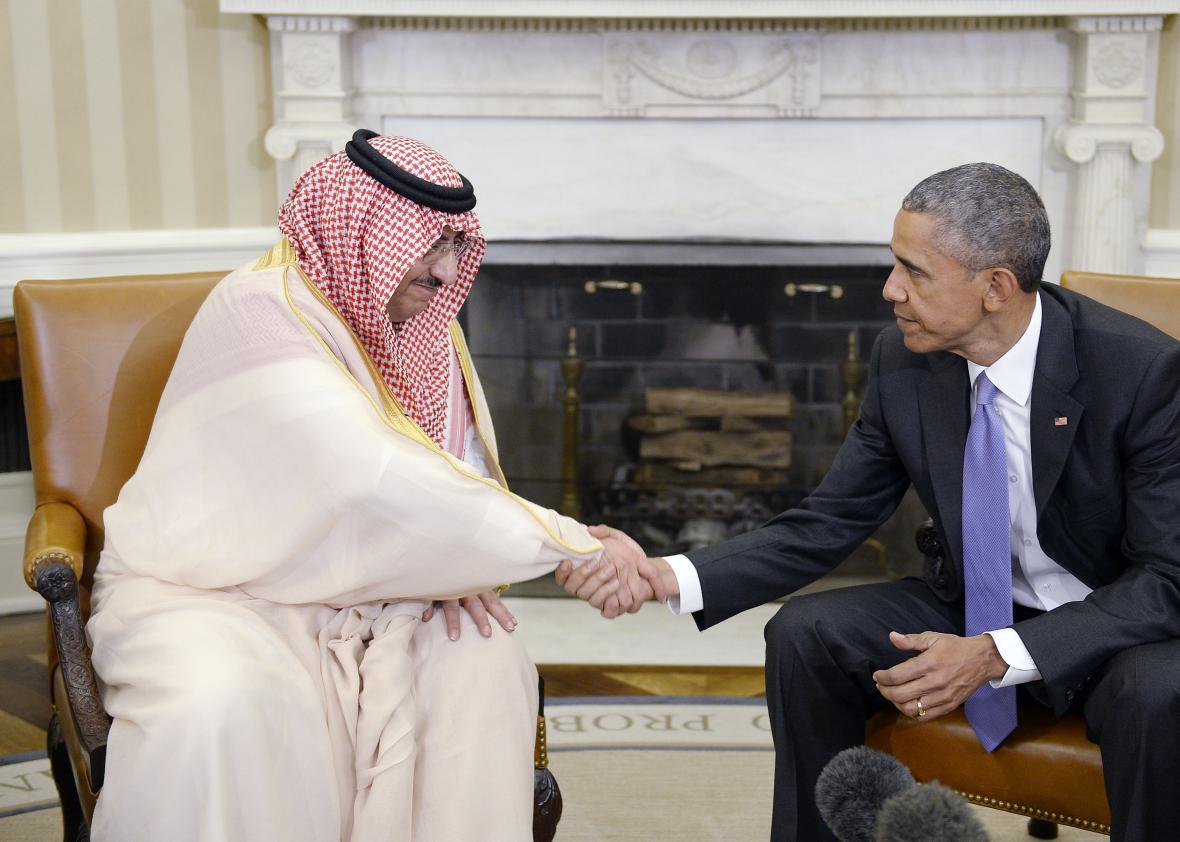As the Justice Against Sponsors of Terrorism Act wends through Congress, the White House has been sending increasingly anxious signals that President Barack Obama will veto the bill. JASTA, which would give 9/11 victims and families the right to sue Saudi Arabia for damages in U.S. courts, has been controversial from the start—yet it enjoys broad bipartisan support in Congress. Why is the measure so divisive? Why has it so deeply divided the Democratic Party? To understand JASTA’s perceived flaws, we must first dig into its perceived necessity.
Victims of the 9/11 attacks have long striven to sue Saudi Arabia in United States court, under the theory that the country abetted 9/11 terrorists. But in litigation that lasted longer than a decade, victims have mostly lost. The roadblock is a federal law called the Foreign Sovereign Immunities Act, which regulates American courts’ power to hear lawsuits against other nations. Although the FSIA was passed in 1976, the notion that “the courts of one country will not sit in judgment on the acts of the government of another done within its own territory” has a long pedigree in the American legal system. The FSIA codified this concept by limiting U.S. suits against foreign countries.
But the FSIA has two critical exceptions that formed the basis of the 9/11 lawsuit against Saudi Arabia. First, it allows lawsuits against other nations for “noncommercial torts,” e.g., wrongful conduct that causes injury or death. Second, the FSIA permits U.S. lawsuits against “state sponsors of terrorism.” The correct interpretation of these clauses, and their application to the 9/11 case, are still in dispute. But under the law as currently interpreted by the 2nd Circuit Court of Appeals, FSIA immunity is only negated when the “entire tort” at issue occurred within the United States. Because Saudi Arabia’s allegedly tortious conduct would have occurred primarily in that country—planning, funding, etc.—a district court within the 2nd Circuit threw out the 9/11 lawsuit in September. (That decision is being appealed.)
JASTA would essentially broaden the tort exception to FSIA, permitting lawsuits against foreign countries whose harmful conduct through sponsorship of terrorism causes injury in the United States—no matter where that underlying conduct occurred. Similarly, JASTA would modify a different federal law, the Anti-Terrorism Act, which has been read to bar American lawsuits against foreign nations that abet terrorist organizations. JASTA would clarify that these governments can be held liable in American court if they aid terrorist groups. (It’s worth noting that the plaintiffs suing Saudi Arabia—who, of course, support JASTA—aren’t entirely sure whether the country really did abet the 9/11 terrorists, because the relevant 28 pages of the 9/11 congressional report remain classified. But as my colleague Ben Mathis-Lilley recently explained, these missing pages may contain information “about assistance that Saudi nationals with government connections provided to some of the 9/11 hijackers while those hijackers were in the United States.”)
Under typical principles of fairness, JASTA is a just and necessary bill. Under basic norms of international law, however, it is a disaster. A primary justification for foreign sovereign immunity is comity: America doesn’t judge foreign countries’ internal decisions; in return, other countries don’t judge America’s. JASTA would jettison this principle for a different proposition: America doesn’t judge foreign countries’ internal decisions, unless they’re really, really bad. Yes, the bill specifically targets terrorist aid and enablement, but Obama and the State Department are nervous that other countries could retaliate by passing even broader waivers of sovereign immunity, allowing lawsuits against American service members, diplomats, and government officials in their own courts. (And it may go without saying that some of these courts—like, say, Saudi Arabia’s—do not comply with American standards of due process.)
Reasonable people can disagree about which principle is more important: just compensation for terrorist victims, or reciprocal sovereign immunity for foreign nations. The debate is more philosophical than political, which explains Congress’ apparent eagerness to pass rare bipartisan legislation. But Obama is almost certain to veto JASTA out of concerns over international retribution. So unless Congress has the votes to override his veto—which remains unclear—the JASTA debate will remain largely academic.
Many thanks to Steve Vladeck for his insights into FSIA exceptions.
